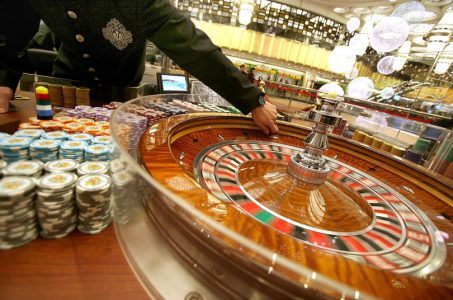Vietnam Official Dang Anh Tuan Arrested for Alleged Role in Illegal Gambling Ring
Posted on: April 25, 2019, 09:22h.
Last updated on: April 26, 2019, 11:18h.
Dang Anh Tuan, chief inspector of Vietnam’s Information Ministry, is the latest high-ranking government leader arrested by local authorities in connection with a $420 million online gambling operation.

Tuan, 49, was taken into custody Thursday and is suspected of violating laws on taking undue advantage of his government post — which he has held since 2015, according to Vn Express International.
He allegedly failed to act promptly after gambling violations were discovered as far back as 2016.
Details of the allegations were not immediately available.
As part of the inquiry, police searched his residence and office located in Hanoi.
Police in Phu Tho Province initially uncovered the gambling ring in 2016 after looking into a related fraud case. As their inquiry expanded, last year officials arrested Phan Van Vinh, a former director of the General Police Department, and Nguyen Thanh Hoa, a former director of the Department for High-Tech Crime Prevention.
The pair were put on trial and found guilty of “abusing power or position in the performance of official duties” Vinh was sentenced to nine years in prison. Hoa was sentenced to 10 years. Both were fined VND100 million (US $4,300).
Some 90 other defendants suspected of being involved with the illegal ring were charged with such crimes as: organizing gambling, money laundering, illegal trading of invoices, and using the internet to appropriate assets, the news report said. Seventeen of the suspects were fined VND40 million (US $1,724) each, 22 were given probation and the rest received up to a three years’ sentence in prison.
The ring, started in 2015, generated over VND9.8 trillion (US $426 million) and had nearly 43 million users.
Other Recent Vietnam Gambling Arrests
In an unrelated case, police earlier this month searched an illegal gambling den located in a wooded area in Gia Lai Province. Approximately 130 gamblers were found and later held by authorities, according to local news reports. Police also seized about VND300 million (US $12,900).
In still another series of arrests, Vietnam police — also this month — arrested three South Korean men in connection with an online illegal gambling ring.
It involved about 8.6 billion KRW (US $7.3 million). The suspects were identified in local news reports as: Kim Joo Hyeon, An Kwang Ho and Kim Hong Min. Police claim the trio went to Vietnam to set up an online gambling operation that targeted residents of South Korea.
Legal Gambling Expanding
Legal gambling is also opening up in Vietnam. As of January, residents can wager in their own country at a brick-and-mortar casino — at least during a three-year test period — at the new Corona Casino on Phu Quoc Island. The restrictions on Vietnamese residents include: being at least 21 years old and meeting certain incomes requirements.
They pay VNĐ1 million (US $43) for a 24-hour pass, according to VietNam News. Local gamblers must also prove their monthly income is at least VNĐ10 million (US $431). The annual average salary of adults in Vietnam is about $1,800 — or $150 for a month, according to the International Monetary Fund.
Ending the ban on locals gambling raised concerns among US officials in a State Department report released this month. It increases risks for money laundering and other illicit activities, according to the 2019 edition of the department’s International Narcotics Control Strategy Report.
Vietnam’s potential for illicit financial transactions will increase in the coming years, the report further warns. There is special concern given the large sums of money flowing through casino cashier cages daily.
Until the Southeast Asian nation’s government passed a decree in 2017, only foreigners traveling with a valid passport could access the gaming floors.
Related News Articles
Most Popular
LOST VEGAS: The Foster Brooks Robot at MGM Grand
Bally’s Sets Date for Tropicana Las Vegas Implosion & Party
Most Commented
-
VEGAS MYTHS RE-BUSTED: You Don’t Have to Pay Resort Fees
— August 2, 2024 — 16 Comments -
VEGAS MYTHS RE-BUSTED: Elvis Was a Straight-Up Racist
— August 9, 2024 — 11 Comments -
ANTI-SOCIAL BEHAVIOR: Vegas Casino Buffet Stunt in Poor Taste Goes Viral
— August 16, 2024 — 7 Comments -
VEGAS MYTHS RE-BUSTED: The Strip Tried Appealing to Families and Failed
— August 23, 2024 — 7 Comments
















No comments yet